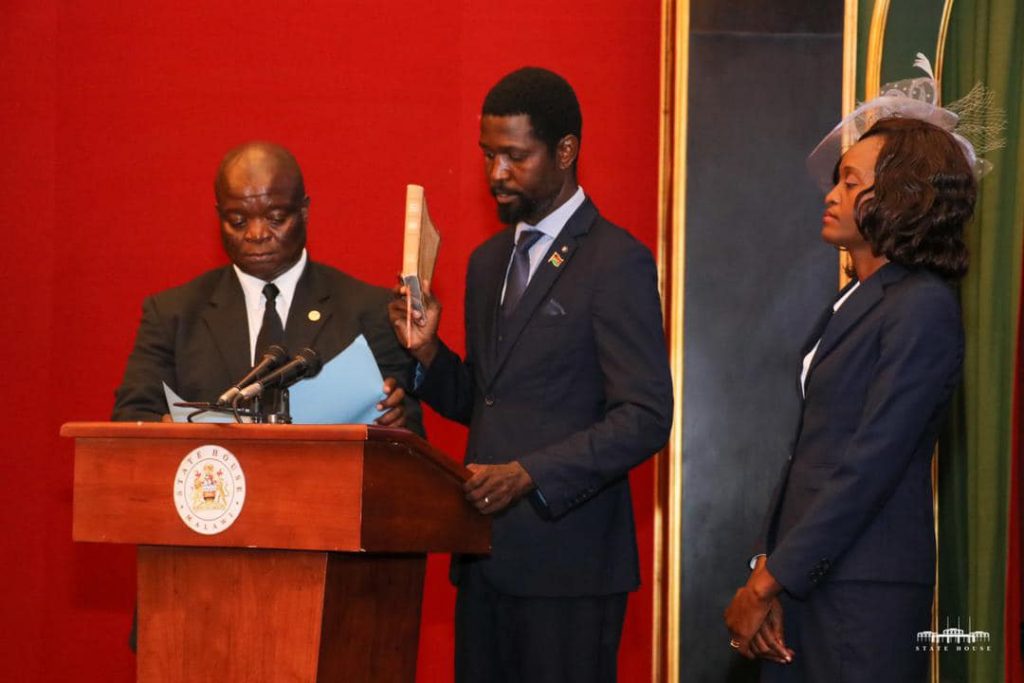Cabinet reshuffle saves taxpayers K234 million
President Lazarus Chakwera’s decision to trim the Cabinet may see taxpayers saving about K234 million in salaries and benefits annually, but critics argue it should have been leaner to cut further on public expenditure.
The Office of President and Cabinet (OPC) announced a new 27-member Cabinet last week comprising the President, the Vice- President, 21 ministers and four deputy ministers.

Government spends around K6.9 million monthly on each Cabinet minister in salaries and benefits and K6.6 million on the deputies who double as members of Parliament (MPs).
The composition modification, therefore, has blown the ministers’ annual wage bill by K82.8 million while that of deputy ministers has dropped by K316.8 million per year resulting in overall yearly savings of K234 million.
Cabinet ministers’ monthly entitlement include a basic salary of K1 856 000 and K1 542 800 for the deputies, house rental allowance of K1.2 million, K500 000 hospitality allowance as well as K100 000 airtime allowance for full ministers and K80 000 for juniors.
There is also security allowance pegged at K400 000 while K500 000 is designated as utility allowance, according to an OPC minister’s benefits memo of 2020 shows.
Ministers who double as legislators also earn constituency allowance of K700 000 and 1 200 litres of fuel (about K1 764 000).
In a telephone interview yesterday, Democratic Progressive Party (DPP) spokesperson on finance issues Joseph Mwanamvekha said it would have been better if the Cabinet were below 20, including the President and Vice-President.
He said: “That would have been more reasonable and it is doable. This is what Professor Arthur Peter Mutharika did and it worked very well. The entire period that he was President, they were 20 and we maintained that.
“This was a demonstration that the government can perform even with a reduced number of Cabinet ministers . What is important is to get the quality, having people that know their job, people that are qualified and experienced to do the job.”
Economist Bond Mtembezeka in an interview said though the lean Cabinet translates into some savings, the ministers’ efficiency also matters.
He said: “We can have a lean Cabinet which is very incompetent. So, the primary focus should be on how efficient the Cabinet is. Of course, all else being equal we expect that a lean cabinet alleviates fiscal pressures. Any tambala saved which in other circumstances would have been spent is worth it.”
Sharing his views, political scientist Ernest Thindwa applauded the President for trimming the Cabinet, a move he said will reduce excessive burden on the taxpayers.
However, he argued that there was need to also focus on attaining financial prudence which he argued required “far wider measures than mere trimming of the cabinet”.
Thindwa said: “Given the resource-constrained environment in which the administration is operating, focus on result-oriented budgeting and spending would enhance financial prudence and contribute to efforts for containing budgetary pressures.
“As such we need to re-examine our budgeting and spending traditions to achieve efficiency in public resource usage and align the same to the Malawi 2063 Vision, the country’s development blueprint, if we are to make any meaningful gain on our shared development aspirations.”
President ial press secretary Anthony Kasunda referred The Nation to the OPC whose officials were not available by the time we went to press.





